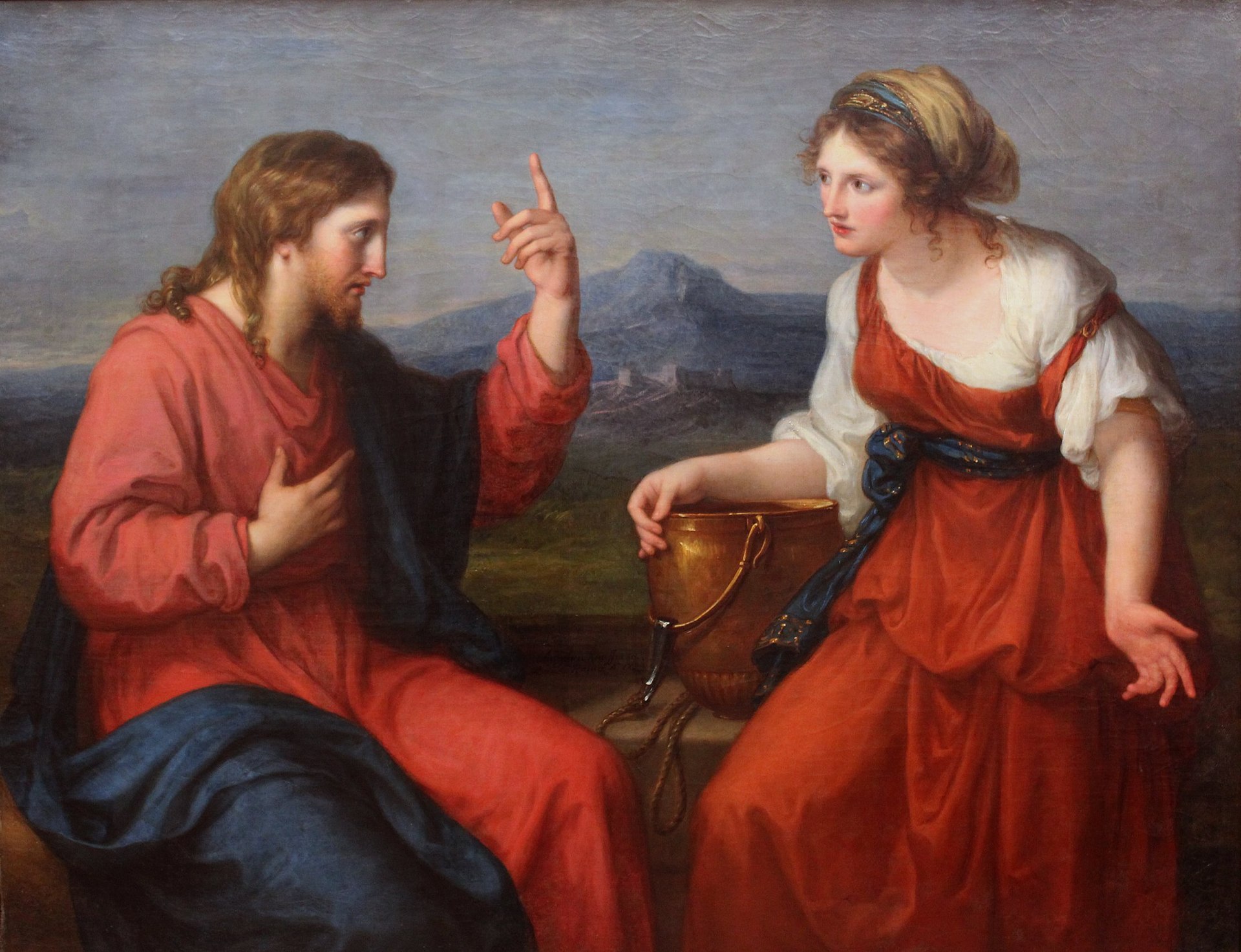Now in the sixth month the angel Gabriel was sent from God to a city in Galilee called Nazareth, to a virgin engaged to a man whose name was Joseph, of the descendants of David; and the virgin’s name was Mary. And coming in, he said to her, “Greetings, favored one! The Lord is with you.” But she was very perplexed at this statement, and kept pondering what kind of salutation this was. The angel said to her, “Do not be afraid, Mary; for you have found favor with God. And behold, you will conceive in your womb and bear a son, and you shall name Him Jesus. He will be great and will be called the Son of the Most High; and the Lord God will give Him the throne of His father David; and He will reign over the house of Jacob forever, and His kingdom will have no end.” Mary said to the angel, “How can this be, since I am a virgin?” The angel answered and said to her, “The Holy Spirit will come upon you, and the power of the Most High will overshadow you; and for that reason the holy Child shall be called the Son of God. And behold, even your relative Elizabeth has also conceived a son in her old age; and she who was called barren is now in her sixth month. For nothing will be impossible with God.” And Mary said, “Behold, the bondslave of the Lord; may it be done to me according to your word.” And the angel departed from her. (Luke 1:26-38, NASB)
I love the story of Mary. Visited by an angel, given some startling news from God, and rolling with it.
Dr. Luke’s account has the archangel Gabriel visiting Mary. He delivers news to her: She is highly favored by God, and she will conceive and bear a son. His name would be Jesus. She is more puzzled than anything–after all, she explains, she’s a virgin. When Gabriel explains the supernatural circumstances of her impending conception, she replies, “Behold, the bondslave of the Lord; may it be done to me according to your word.” Amazing! Totally on board with God’s plan, despite her earthly circumstances!
 “The Annunciation,” by Salomon Koninck, 1655, found at Wikipedia, en.wikipedia.org
“The Annunciation,” by Salomon Koninck, 1655, found at Wikipedia, en.wikipedia.org
Mary has a couple of problems. First, she’s betrothed to Joseph, a local carpenter. The account in Matthew 1 describes Joseph as a devout and good man. When he finds that Mary is with child, he decides to put her away secretly and quietly. His other option under the Mosaic Law was to have her stoned to death. But when Gabriel visits Joseph to explain the situation, Joseph takes Mary back, and agrees to be the Child’s legal father.
Mary’s second problem, mentioned above, is her potential condemnation under the Law of Moses. A betrothal under Jewish law was as good as being married. The penalty for adultery, then, was death by stoning. At the very least, if not put to death, she could be shunned and ostracized by her community (This was portrayed well in the 2006 movie “The Nativity Story.” Sure enough, the townspeople turned their backs on Mary after they saw she was pregnant. As Joseph and Mary were about to leave on their trip to Bethlehem, while they were being treated very badly, Joseph said, “I think they’re going to miss us.”). Having this on her mind as Gabriel gave her the news must have amounted to enormous pressure. On top of that, Mary was likely a mere teenager. Yet she submitted to God’s plan, said “Your servant,” and moved on. That’s probably why God chose her for this mission!
A few years back (1990s?), a group of contemporary Christian singers toured the country during Advent, and put on an opera of sorts about the Christmas story. Crystal Lewis, whose song is below, played the part of Mary. I’ve always thought of this as a modern-day “Magnificat” (The poem attributed to Mary when she visited her relative Elizabeth. See Luke 1:46-55).
Oh, to have Mary’s faith and trust! A mere teenager, visited by an angel (by all accounts, a frightening experience!), and given this news. She had yet to face her fiance, her family, and the townspeople. Yet under all this this pressure, she immediately said “Yes!” to God. God, in the name of Messiah, Whose birth we celebrate, please give me the faith of Mary, to recognize Your will and do it, no matter the consequences.

 Untitled, found at
Untitled, found at 
 “The Preaching of St. John the Baptist,” by
“The Preaching of St. John the Baptist,” by 
 “Christ Driving the Money Changers from the Temple,” by El Greco, before 1570. Found at Wikipedia Commons,
“Christ Driving the Money Changers from the Temple,” by El Greco, before 1570. Found at Wikipedia Commons, 
 Untitled, found at The Foundry Community,
Untitled, found at The Foundry Community, 





